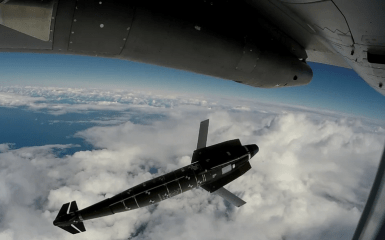France will provide the Armed Forces with AASM Hammer aerial bombs, which can be adapted for Su-24 and MiG-29 aircraft. Ukraine should receive at least 300 such bombs in 2024.
What is known about the Hammer aerial bombs
Aviation expert Valery Romanenko told about this, noting that the French should transfer about 50 aerial bombs every month. It is important that these bombs are suitable not only for Soviet aircraft, but also for French and American F-16s.
Hammer is a complete analogue of Russian bombs, but not primitive ones, but UPAB-1500. They have a caliber from 250 to 1000 kilograms. Unlike Russian bombs, they have an additional small solid-fuel rocket engine.
Thanks to this engine, Hammer air bombs can be used even from attack aircraft, the aviation expert emphasized.
Ukraine was armed with American JDAM-ER cruise bombs, an analogue of Russian UPABs. However, we could not use them, because such a bomb is dropped from a distance of 30-40 kilometers, and Russian anti-aircraft missile systems, in particular the S-400, are capable of hitting aircraft at a distance of up to 200 kilometers.
We had the opportunity to drop the bomb, but every time the plane could be hit by Russian anti-aircraft missiles. There was no point in taking risks, he explained.
As for the French Hammer air bombs, which have an additional engine, they will fly to a distance of 20 kilometers, if they are dropped even from low heights - 300 - 500 meters.
Then we will be able to work along the Russian defense lines with these bombs. But on the Russian rear - hardly, because it will be risky to use planes that will drop these bombs, - emphasized Valery Romanenko.
These are high-precision bombs that have a special kit that significantly increases their range and accuracy. The set consists of two parts. The tail part can be equipped with a solid-fuel jet engine, and the nose is available in three versions: only satellite, or with the addition of a thermal imaging or semi-active laser homing system. The bomb has a range of more than 70 kilometers.
Macron defended his own statements regarding the introduction of NATO troops into Ukraine
French President Emmanuel Macron assured that he weighed every word in his own statements regarding the introduction of NATO troops into the territory of Ukraine.
These are quite serious topics. Every word I say on this topic is considered, thought out and balanced, - Macron emphasized.
However, reacting to this statement of the French president, a number of European countries, including Germany, Poland, Italy and the Czech Republic, as well as the United States of America, categorically rejected the idea of introducing ground troops.




